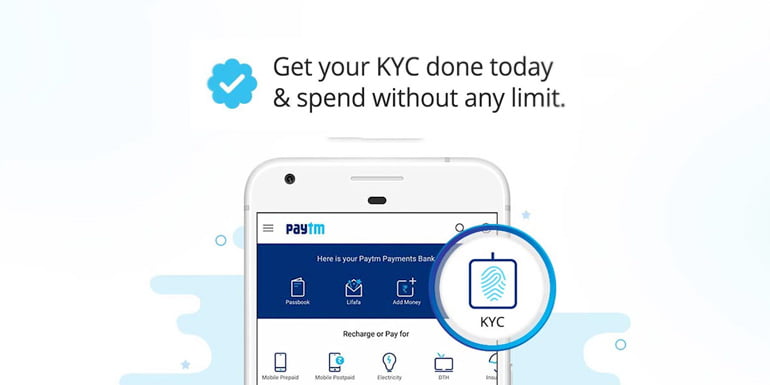If you are using a digital wallet like Paytm, PhonePe etc, you will soon have to provide valid KYC details as per RBI policy. The current deadline is 28th February 2018, after which there will be a restriction on your transactions. We cannot blame the wallet providers since they have to comply with RBI’s KYC norms introduced back in October 2017. So to deal with it, you will have to complete the KYC using the methods given by the wallet providers. Let us find out more about the digital wallet types, imposed restrictions and how to remove the same.
Types Of Digital Wallets in India
These digital wallets are otherwise known as Prepaid Payment Instruments (PPI) in banking terms. As per RBI regulations, they are of three types viz closed PPI, semi-closed PPI, and open PPI.
- Closed PPI can be issued by a person or entity for facilitating transactions with him or them.
- Semi-closed PPI allows transactions with more entities. These include wallets like Freecharge, PhonePe etc.
- Open PPI allows cash withdrawals in addition to transactions. Only banks can issue these instruments.
KYC Norms And Documents For PPI
As per RBI, you need to perform either minimum KYC or full KYC for availing the services provided by semi-closed and open PPIs. A minimum KYC is possible by submitting an officially valid document (OVD) listed under Prevention of Money Laundering rules 2005.
- Passport, driving licence, Permanent Account Number (PAN) Card, Voter’s Identity Card issued by Election Commission of India
- Job card issued by NREGA duly signed by an officer of the State Government.
- Aadhaar or the letter issued by the Unique Identification Authority of India containing details of name, address and Aadhaar number.
- Any other document as notified by the Central Government in consultation with the Regulator.

Whereas a full KYC requires you to link your Aadhaar with the PPI account. The full KYC process can be done using PPI’s app or website and KYC centre. Most of the PPI’s allows you to perform e-KYC with Aadhaar authentication, which can be done within seconds.
How To Complete Full KYC For Semi-Closed PPI – eWallets
Many of the PPI providers have simplified the KYC process by integrating the Aadhaar based e-KYC authentication. This can be done from the PPI’s biometric device with the help of their KYC agent or with the PPI app via Aadhaar OTP authentication. However, for OTP based e-KYC, an aadhaar registered mobile number is required.
- Open the corresponding Wallet or navigate to their web portal.
- Locate the KYC menu, select and agree to terms and conditions.
- Key in your Aadhaar number and initiate the authentication.
- Type the Aadhaar OTP, verify the KYC details and submit.
- Your new limits and restrictions will be effective after verification.
A similar procedure is also possible for open PPI ie savings bank accounts. For the biometric method, if the provider fails to arrange a KYC agent, you might need to visit the KYC centre personally to complete the procedure. Any semi-closed PPI linked to a KYC verified open PPI will also be auto verified.
Types of KYC Verified eWallets And Restrictions
Based on the type of verification completed, your wallet operations will have the following functionalities. If you choose to provide no OVD’s, then your wallet will have severe restrictions that make it almost unusable.
- Full KYC wallet has limit up to Rs.1,00,000 at any point of time with no restrictions
- Minimum KYC Wallet with self-declaration which has monthly limit up to Rs.10,000 per month and Rs.1,00,000 annually.
- Restricted Minimum KYC wallet is the default one if you choose not provide self-declaration. Money loading is not possible, but you can use existing balance.
Conclusion
That was all about the KYC verification of digital wallets aka eWallets. Nowadays, people open wallet accounts randomly for availing introductory offers or benefits. After the implementation of the strict KYC norms by RBI, the wallet providers are going to have a hard time and eventually a crisis. So it is better to choose a few based on your requirements and ignore the rest. Some of the popular wallet providers are Amazon Pay, Paytm, PhonePe, Freecharge, and Vodafone mPesa. Hope the article was informative, Peace!


